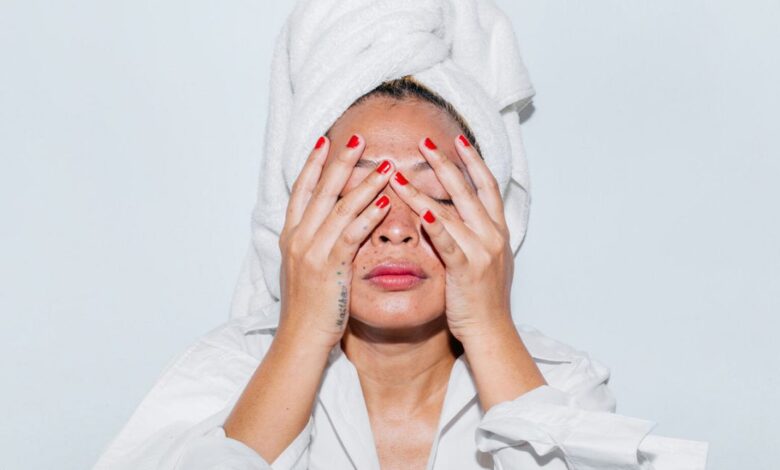
We love mythology! However, not so much in skincare if it perpetuates false beliefs or unattainable beauty standards.
Here are some big myths in skincare that need to be dispelled.
Myth #1: Pores Open and Close
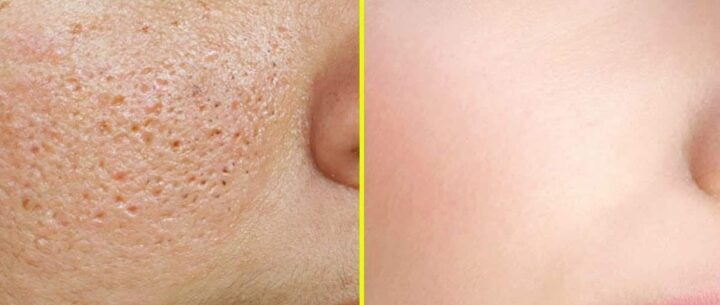
Pores allow sweat and oil to escape onto the skin’s surface. They do not open and close like a door. However, they can expand or dilate slightly, especially if there is sebum buildup. This can lead to larger, more visible pores. To help oil-clogged pores, you can use a BHA serum (such as salicylic acid). Pores will never close entirely because oil, sweat, and other debris must be able to reach the skin’s surface. Heat, like steam, may loosen and bring oil to the surface, but be careful to avoid excessive heat, which can damage your skin barrier. Hot water and hot steam are not needed for a proper cleanse and can be quite damaging.
Myth #2 – Preservatives are Bad
Although some preservatives are not well-known in the skincare industry, they play an essential role in extending the shelf life of your products. It’s impossible to avoid the use of preservatives in products containing water. They’re necessary to stop bacteria from growing. If a product claims it is “preservative-free” but contains water on its ingredient list, it may not be safe to use. The controversy about parabens is a whole other article, but the bottom line is that preservatives are necessary to prevent you from using products contaminated with bacteria, yeast, and mold. This microorganism growth can occur within a few days in any water-containing beauty products that aren’t preserved.
Myth #3: Chemicals are Unsafe, Natural is Best
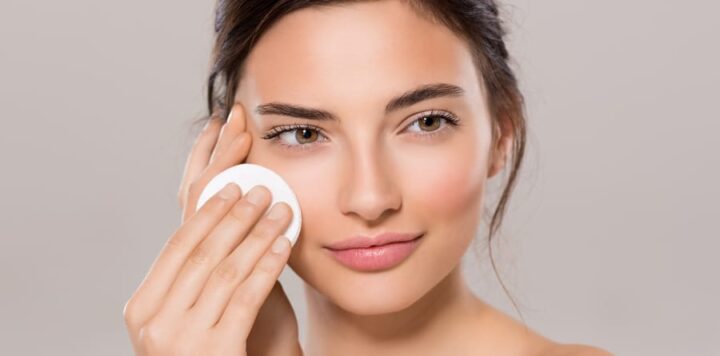
Chemicals and synthetic ingredients are safe and effective. Natural ingredients are also safe and effective. There doesn’t need to be a war between natural and chemical or clean versus science. We need to end the unfounded belief that artificial ingredients manufactured in a laboratory are unsafe or unhealthy. Many synthetic ingredients have incredible benefits for the skin. With that said, there are also many incredible, well-researched, plant-derived ingredients. Many botanicals are active and effective as well.
The most important thing is honest, ethical, and transparent marketing. Ethical marketing is critical when a beauty brand creates a product for a specific niche (be it consumers who want clinical vs natural skincare products). Creating and selling natural products that contain active botanicals is not problematic unless the brand is deceptive and advertising its product as “safe” and implying that other products are “unsafe”. bareLUXE is a Canadian skincare brand that’s getting things right in the world of natural skincare and ethical marketing. Bottom line is that perpetuating misinformation and false scientific claims is a problem regardless of whether your ingredients are considered natural or synthetic.
Myth #4: SPF is Not Necessary if it is Cloudy or Winter

Sunscreen is the best skincare product you can use to protect your skin against damaging UV rays. These rays can cause premature ageing and even cancer. Although it can be tempting to skip sunscreen because it is cloudy or low in UV index, up to 80% of UV rays will still reach you. It is best to use sunscreen of 30 or more to protect yourself from UV rays that can penetrate clouds – year-round. Sunscreen is necessary even if your skin is dark or medium-toned.
Myth #5: Spray Tan Will Protect You From Sunburns
This one is just so absolutely untrue we don’t even know what else to say. And while we’re at it, NO! Tanning beds are not safer than the sun!
Myth #6: Acne is Caused By Dirty Skin
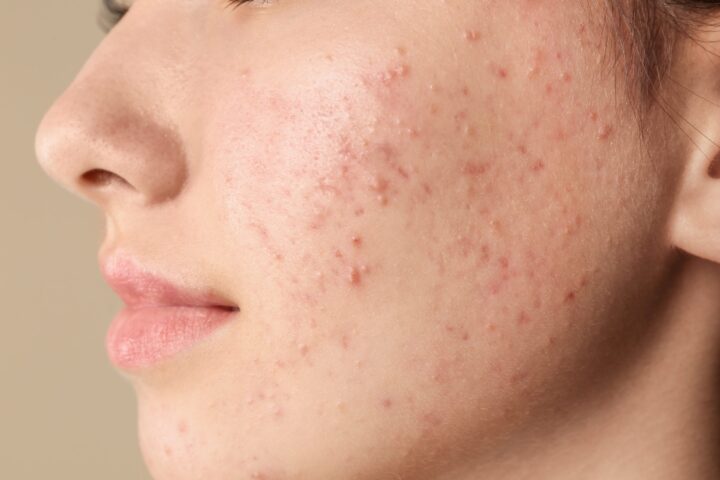
This is partially true because dirty skin can be more prone to acne. According to Slash and Scroll a cleansing routine is always essential. A cleansing routine is always essential. That said, people with awful acne do not have a hygiene problem. Over-cleansing and over-exfoliating can be just as bad for causing acne when the skin barrier gets damaged. Your skin is your first line of defense against pathogens. It has a protective acid layer. The skin’s pH can be affected by changes in the environment, encouraging the growth of bacteria. This includes the acne-causing bacteria Propionibacterium Acnes (P. acnes). Use products that have a pH close to skin’s, approximately 5.5. Keep your pillow cases clean. Have a gentle cleansing ritual, and see your primary care physician or dermatologist if it’s bothersome and not improving.
Myth #7: Oily Skin Doesn’t Need Moisturizer
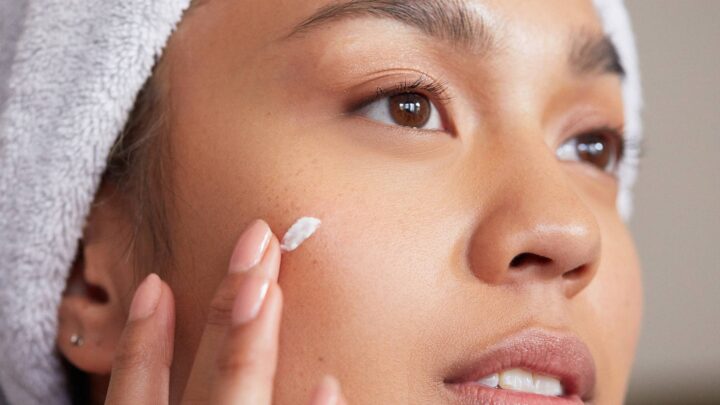
Untrue! If you have oily skin, you might be prone to over-washing and under-moisturizing. Both can backfire and cause barrier damage and breakouts. You may end up looking even shinier if the moisture is not replaced. You might prefer something light, but don’t skip it altogether.
Myth #8: Oily Skin Can’t Use Face Oils
Not true. Many face oils have excellent skin benefits for all skin types. Many of them are highly unlikely to clog pores. Also, some of them, like squalane and jojoba, help regulate your own natural sebum production and can actually help reduce acne. Face oils are very nourishing for everyone.
Myth #9: If A Product Burns or Stings, That Means It’s Working
“No pain, no gain” is a phrase that’s best left at the gym! When you feel burning, stinging, or pain, that’s usually your skin crying out for help. For many people this is the first clue that their skin barrier is about to become angry with them. It’s important to listen to your skin and, if you’re experiencing pain, dial back the intensity of whatever routine you’re using.
Myth #10: I Don’t Need to Worry About Skincare Until I’m Older
Very untrue. For young people with healthy skin, preventing the signs of ageing is one of the best anti-ageing treatments there is. Having a simple routine at a young age can protect and prevent you from needing a complex or invasive routine later. Everybody should be cleansing, moisturizing, and wearing SPF. No exceptions. Keep it simple. Keep it gentle. But don’t ignore it until you start seeing issues. By far, for young people, the best prevention of age-related skin changes is wearing SPF and not being a smoker.
